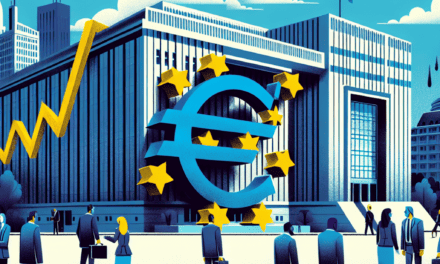“AMC Stock Decline: The Curtain Falls on Meme-Stock Magic”
Introduction
AMC Stock Decline: Unraveling the Loss of Its Meme-Stock Appeal
In the volatile world of stock trading, few phenomena have captured the public’s imagination quite like the meteoric rise and subsequent decline of meme stocks. Among these, AMC Entertainment Holdings Inc. stood out as a symbol of the retail investor revolution, driven by social media-fueled enthusiasm and a desire to challenge traditional market dynamics. However, as the dust settles, AMC’s stock has experienced a significant decline, prompting investors and analysts to scrutinize the factors behind its waning appeal. This decline not only reflects the inherent volatility of meme stocks but also underscores the challenges faced by companies attempting to sustain momentum in an ever-evolving market landscape. Understanding the reasons behind AMC’s stock decline offers valuable insights into the broader implications for retail investors and the future of meme-stock phenomena.
Understanding the Rise and Fall of AMC’s Meme-Stock Status
The phenomenon of meme stocks has been a captivating chapter in the financial markets, with AMC Entertainment Holdings Inc. standing out as a prominent player in this narrative. The rise and subsequent decline of AMC’s stock price offer a compelling case study in the dynamics of retail investor behavior, market speculation, and the influence of social media. Initially, AMC’s stock price surged dramatically, driven by a wave of enthusiasm from retail investors who congregated on platforms like Reddit’s WallStreetBets. These investors, often motivated by a mix of financial aspirations and a desire to challenge traditional market players, propelled AMC into the spotlight. The stock’s meteoric rise was not solely based on the company’s fundamentals but rather on a collective belief in its potential as a turnaround story and a vehicle for outsized gains.
As the stock price soared, AMC capitalized on the opportunity by issuing new shares, raising capital to shore up its balance sheet and navigate the challenges posed by the COVID-19 pandemic. This strategic move provided the company with much-needed liquidity, allowing it to reduce debt and invest in its operations. However, the very factors that contributed to AMC’s initial rise also sowed the seeds of its decline. The meme-stock phenomenon, characterized by extreme volatility and speculative trading, eventually led to a loss of momentum. As the initial excitement waned, the stock’s price began to retreat, reflecting a more sober assessment of the company’s long-term prospects.
Moreover, the broader market environment played a significant role in AMC’s decline. As interest rates rose and inflationary pressures mounted, investors became more risk-averse, shifting their focus away from speculative plays towards more stable investments. This shift in sentiment was exacerbated by regulatory scrutiny, as authorities expressed concerns about the potential risks associated with meme stocks and the need for greater transparency in trading practices. Consequently, the speculative fervor that had driven AMC’s stock price to unprecedented heights began to dissipate.
In addition to these external factors, AMC faced internal challenges that further eroded its meme-stock appeal. The company’s core business, centered around movie theaters, continued to grapple with the lingering effects of the pandemic, including changing consumer preferences and the rise of streaming services. While AMC made efforts to diversify its revenue streams and enhance its customer experience, these initiatives were not sufficient to offset the structural challenges facing the industry. As a result, investors began to reassess the company’s growth potential, leading to a more cautious outlook on its stock.
Despite the decline in its stock price, AMC’s journey as a meme stock has left a lasting impact on the financial markets. It has highlighted the power of retail investors to influence market dynamics and challenged traditional notions of valuation and investment strategy. Furthermore, it has underscored the importance of understanding the interplay between market sentiment, social media, and corporate fundamentals. As AMC continues to navigate its post-meme-stock era, it serves as a reminder of the complexities and uncertainties inherent in the financial markets. The rise and fall of AMC’s meme-stock status offer valuable lessons for investors and companies alike, emphasizing the need for adaptability and resilience in an ever-evolving landscape.
Factors Contributing to AMC’s Stock Decline
The decline of AMC’s stock, once a darling of the meme-stock phenomenon, can be attributed to a confluence of factors that have gradually eroded its appeal among retail investors. Initially, AMC Entertainment Holdings Inc. captured the imagination of a new generation of investors, driven by the power of social media platforms like Reddit. However, as the dust settles, several underlying issues have come to the forefront, contributing to the stock’s downward trajectory.
To begin with, the fundamental financial health of AMC has been a significant concern. Despite the initial surge in stock price fueled by retail investor enthusiasm, the company’s financial statements reveal a different story. AMC has been grappling with substantial debt, a legacy of its aggressive expansion strategy prior to the pandemic. This debt burden has been exacerbated by the COVID-19 pandemic, which severely impacted the cinema industry. Although theaters have reopened, the recovery has been slower than anticipated, with box office revenues yet to return to pre-pandemic levels. Consequently, the company’s ability to generate sufficient cash flow to service its debt remains in question, casting a shadow over its long-term viability.
Moreover, the competitive landscape has shifted dramatically, further challenging AMC’s position. The rise of streaming services has fundamentally altered consumer behavior, with many opting for the convenience of home viewing over traditional cinema experiences. This shift has been accelerated by the pandemic, as studios increasingly release films directly to streaming platforms, bypassing theatrical releases. As a result, AMC faces the daunting task of reinventing itself to remain relevant in an industry that is rapidly evolving.
In addition to these industry-specific challenges, broader market dynamics have also played a role in AMC’s stock decline. The initial meme-stock rally was characterized by a surge of retail investor interest, driven by a desire to challenge institutional investors and capitalize on short squeezes. However, as market conditions have normalized, the speculative fervor that once propelled AMC’s stock has waned. Investors have become more discerning, focusing on companies with strong fundamentals and sustainable growth prospects. This shift in investor sentiment has led to a reevaluation of AMC’s stock, resulting in a decline as the speculative bubble deflates.
Furthermore, regulatory scrutiny has increased in the wake of the meme-stock phenomenon, adding another layer of complexity to AMC’s situation. Regulatory bodies have expressed concerns about market manipulation and the potential risks posed by highly volatile stocks. This increased oversight has led to a more cautious approach among retail investors, who are now more aware of the risks associated with speculative trading. Consequently, the regulatory environment has contributed to a cooling of interest in meme stocks, including AMC.
In conclusion, the decline of AMC’s stock can be attributed to a combination of internal financial challenges, shifts in the competitive landscape, changing investor sentiment, and increased regulatory scrutiny. While the initial meme-stock rally brought unprecedented attention to AMC, the underlying issues have gradually come to the forefront, leading to a reassessment of its value. As the company navigates these challenges, its ability to adapt and innovate will be crucial in determining its future trajectory in an increasingly competitive and dynamic industry.
The Role of Social Media in AMC’s Stock Volatility
The rise and fall of AMC Entertainment Holdings Inc.’s stock price have been a captivating saga in the financial world, largely driven by the influence of social media. Initially, AMC’s stock experienced a meteoric rise, fueled by a fervent community of retail investors who congregated on platforms like Reddit, particularly within the r/WallStreetBets forum. These investors, often referred to as “apes,” rallied around AMC as a meme stock, propelling its value to unprecedented heights. However, as the initial excitement waned, the stock’s decline has prompted a closer examination of the role social media played in its volatility.
To understand the dynamics at play, it is essential to recognize how social media platforms have transformed the landscape of stock trading. Traditionally, stock market movements were primarily influenced by institutional investors and financial analysts. However, the democratization of information through social media has empowered individual investors to share insights, strategies, and, at times, speculative theories. This shift has allowed retail investors to collectively influence stock prices, as seen in the case of AMC. The rapid dissemination of information and the viral nature of social media posts created a feedback loop, where positive sentiment and hype could quickly amplify stock prices.
Nevertheless, the very factors that contributed to AMC’s initial surge also laid the groundwork for its subsequent decline. As the stock’s value soared, it attracted the attention of short sellers, who bet against its continued rise. This dynamic created a volatile environment where any negative news or shifts in sentiment could trigger significant price swings. Social media, while a powerful tool for rallying support, also became a double-edged sword. Misinformation and rumors spread just as quickly as positive news, leading to increased uncertainty and volatility.
Moreover, the decline in AMC’s stock can be attributed to the waning interest of retail investors. As the novelty of meme stocks faded, many investors began to reassess their positions, seeking more stable and traditional investment opportunities. The initial allure of quick profits gave way to a more cautious approach, as the risks associated with highly volatile stocks became apparent. Social media, which once served as a unifying force, now reflected a more fragmented investor base, with opinions diverging on the stock’s future prospects.
In addition to these factors, regulatory scrutiny has also played a role in dampening the enthusiasm for meme stocks like AMC. The Securities and Exchange Commission (SEC) and other regulatory bodies have expressed concerns about market manipulation and the potential for retail investors to be misled by speculative trading strategies. This increased oversight has added another layer of complexity to the social media-driven trading phenomenon, prompting some investors to exercise greater caution.
In conclusion, the decline of AMC’s stock underscores the intricate relationship between social media and stock market volatility. While social media has democratized access to information and empowered retail investors, it has also introduced new challenges and risks. The case of AMC serves as a reminder of the power and pitfalls of social media in the financial markets. As investors continue to navigate this evolving landscape, the lessons learned from AMC’s rise and fall will undoubtedly shape future interactions between social media and stock trading.
Analyzing the Impact of Market Sentiment on AMC
The decline of AMC stock, once a darling of the meme-stock phenomenon, has become a focal point for investors and analysts seeking to understand the intricate dynamics of market sentiment. The initial surge in AMC’s stock price was largely driven by retail investors who, galvanized by social media platforms like Reddit, sought to challenge traditional market norms. This movement was characterized by a collective enthusiasm that propelled AMC’s stock to unprecedented heights, defying conventional financial metrics and analyst predictions. However, as the fervor surrounding meme stocks begins to wane, AMC’s stock has experienced a notable decline, prompting a closer examination of the factors influencing this shift.
To comprehend the decline in AMC’s stock, it is essential to consider the role of market sentiment, which can be both a powerful catalyst and a destabilizing force. Initially, the positive sentiment surrounding AMC was fueled by a narrative of rebellion against institutional investors, coupled with a sense of community among retail traders. This sentiment was further amplified by the accessibility of trading platforms and the democratization of financial information. However, as the initial excitement subsided, the sustainability of such sentiment-driven investments came into question. The volatility inherent in meme stocks, including AMC, has highlighted the challenges of relying solely on sentiment without a solid foundation in fundamental analysis.
Moreover, the broader economic context has also played a significant role in shaping market sentiment towards AMC. As the global economy grapples with inflationary pressures, interest rate hikes, and geopolitical uncertainties, investors have become increasingly risk-averse. This shift in risk appetite has led to a reevaluation of high-risk investments, including meme stocks, which are often perceived as speculative. Consequently, the appeal of AMC as a meme stock has diminished, as investors seek more stable and predictable returns in an uncertain economic environment.
In addition to macroeconomic factors, company-specific developments have also influenced market sentiment towards AMC. The company’s financial performance, strategic initiatives, and industry trends are critical components that investors consider when assessing its long-term viability. While AMC has made efforts to diversify its revenue streams and adapt to changing consumer preferences, challenges remain. The ongoing impact of the COVID-19 pandemic on the entertainment industry, coupled with the rise of streaming services, has posed significant hurdles for traditional cinema operators like AMC. These industry-specific challenges have further contributed to the erosion of positive sentiment surrounding AMC’s stock.
Furthermore, regulatory scrutiny and the potential for increased oversight of meme stocks have added another layer of complexity to the situation. As regulators examine the implications of retail-driven market movements, the prospect of tighter regulations has introduced additional uncertainty. This regulatory environment has the potential to dampen the enthusiasm of retail investors, who have been instrumental in driving the meme-stock phenomenon.
In conclusion, the decline of AMC’s stock can be attributed to a confluence of factors, including shifting market sentiment, macroeconomic challenges, company-specific developments, and regulatory considerations. While the initial surge in AMC’s stock price was emblematic of the power of collective sentiment, the subsequent decline underscores the importance of a balanced approach that considers both sentiment and fundamentals. As investors navigate this evolving landscape, the case of AMC serves as a poignant reminder of the complexities inherent in sentiment-driven markets and the need for a nuanced understanding of the forces at play.
Lessons Learned from AMC’s Meme-Stock Journey
The journey of AMC Entertainment Holdings Inc. from a struggling movie theater chain to a meme-stock phenomenon and back to a more sobering reality offers a wealth of lessons for investors and market observers alike. The saga of AMC’s stock, which saw unprecedented volatility driven by retail investors, underscores the power and pitfalls of social media-fueled trading. As the dust settles, it is crucial to examine the factors that contributed to AMC’s meteoric rise and subsequent decline, as well as the broader implications for the financial markets.
Initially, AMC’s transformation into a meme stock was largely driven by the collective actions of retail investors congregating on platforms like Reddit’s WallStreetBets. These investors, galvanized by a shared narrative of challenging institutional short-sellers, propelled AMC’s stock price to extraordinary heights. The enthusiasm was not solely based on the company’s fundamentals but rather on a combination of speculative fervor and a desire to disrupt traditional market dynamics. This phenomenon highlighted the growing influence of retail investors, who, armed with commission-free trading apps and social media platforms, could collectively move markets in ways previously thought impossible.
However, as the initial excitement waned, the inherent risks of such speculative trading became apparent. The volatility that characterized AMC’s stock price was a double-edged sword. While some investors reaped significant gains, others faced substantial losses as the stock’s value fluctuated wildly. This volatility served as a stark reminder of the importance of due diligence and the dangers of investing based on hype rather than solid financial analysis. The rapid rise and fall of AMC’s stock price illustrated the transient nature of meme-stock appeal, which can dissipate as quickly as it emerges.
Moreover, AMC’s journey underscores the need for investors to maintain a long-term perspective. The allure of quick profits can be tempting, but sustainable investing typically requires a focus on a company’s underlying business model and growth prospects. In AMC’s case, the company’s financial struggles, exacerbated by the COVID-19 pandemic, were often overshadowed by the meme-stock narrative. As the initial excitement faded, investors were forced to confront the reality of AMC’s operational challenges, including its significant debt load and the evolving landscape of the entertainment industry.
In addition to individual investor lessons, AMC’s meme-stock episode has broader implications for market regulation and stability. The extreme volatility associated with meme stocks has prompted discussions among regulators about the need for enhanced oversight and transparency in the markets. While retail investors’ increased participation is generally seen as a positive development, ensuring that markets remain fair and orderly is paramount. This balance between encouraging investor engagement and protecting market integrity is a delicate one that regulators must navigate carefully.
In conclusion, the rise and fall of AMC as a meme stock offer valuable insights into the dynamics of modern financial markets. The episode highlights the power of collective retail investor action, the risks of speculative trading, and the importance of focusing on fundamental analysis. As investors and regulators reflect on AMC’s journey, the lessons learned will undoubtedly shape future market behavior and regulatory approaches. Ultimately, while the meme-stock phenomenon may have lost some of its initial appeal, its impact on the financial landscape will be felt for years to come.
The Future of Meme Stocks: What AMC’s Decline Teaches Us
The phenomenon of meme stocks, characterized by their rapid rise in popularity driven by social media and retail investors, has been a captivating chapter in the financial markets. Among these, AMC Entertainment Holdings Inc. emerged as a prominent player, capturing the imagination of investors and becoming a symbol of the power of collective retail trading. However, the recent decline in AMC’s stock value has prompted a reevaluation of the sustainability and future of meme stocks. This decline offers valuable insights into the dynamics of such stocks and the lessons that can be drawn for investors and market participants alike.
Initially, AMC’s ascent was fueled by a confluence of factors, including the resurgence of retail investors empowered by online platforms and the allure of participating in a movement that challenged traditional market norms. The stock’s meteoric rise was not solely based on the company’s fundamentals but rather on the enthusiasm and momentum generated by a community of investors. This enthusiasm was further amplified by the narrative of a David-versus-Goliath battle against institutional short-sellers, which resonated with many retail investors. However, as the initial excitement waned, the underlying vulnerabilities of meme stocks began to surface.
One of the primary lessons from AMC’s decline is the inherent volatility associated with meme stocks. The rapid fluctuations in stock prices, driven by sentiment rather than fundamentals, can lead to significant losses for investors who are not prepared for such volatility. This underscores the importance of understanding the risks involved and the need for a cautious approach when investing in stocks that are heavily influenced by social media trends. Moreover, the decline of AMC highlights the transient nature of meme stock popularity. While the initial surge was impressive, sustaining such momentum requires continuous engagement and interest from the investor community. As attention shifts to new opportunities or as the novelty wears off, maintaining the stock’s appeal becomes increasingly challenging.
Furthermore, AMC’s experience illustrates the critical role of company fundamentals in the long-term viability of any stock. While meme stocks can experience short-term gains based on hype, their long-term success is ultimately tied to the company’s ability to deliver value and growth. For AMC, the challenges posed by the evolving entertainment landscape, including the rise of streaming services and changing consumer preferences, have necessitated a strategic reassessment. This serves as a reminder that, regardless of market trends, a company’s financial health and strategic direction remain pivotal.
In addition, the decline of AMC’s stock underscores the importance of regulatory scrutiny in the meme stock phenomenon. The heightened volatility and potential for market manipulation have attracted the attention of regulators, who are increasingly focused on ensuring market integrity and protecting investors. This regulatory oversight is likely to shape the future landscape of meme stocks, influencing how they are traded and perceived by the market.
In conclusion, AMC’s decline offers a multifaceted lesson on the future of meme stocks. It highlights the volatility and risks inherent in such investments, the importance of company fundamentals, and the role of regulatory oversight. As the financial markets continue to evolve, these insights will be crucial for investors seeking to navigate the complex and dynamic world of meme stocks. While the allure of quick gains remains enticing, a balanced and informed approach will be essential for those looking to participate in this unique segment of the market.
Investor Reactions to AMC’s Loss of Meme-Stock Appeal
The recent decline in AMC Entertainment Holdings Inc.’s stock has sparked a wave of reactions among investors, particularly those who were drawn to the stock during its meteoric rise as a meme stock. Initially, AMC captured the attention of retail investors on platforms like Reddit’s WallStreetBets, where a collective effort to drive up the stock price led to unprecedented volatility and significant gains for some. However, as the stock’s appeal as a meme stock wanes, investors are now grappling with the implications of its decline and reassessing their positions.
One of the primary factors contributing to the loss of AMC’s meme-stock appeal is the shift in market sentiment. During the height of the meme-stock frenzy, investors were motivated by a combination of factors, including a desire to challenge institutional investors and capitalize on short squeezes. However, as the novelty of these strategies diminishes, many investors are beginning to focus more on the underlying fundamentals of the companies they invest in. For AMC, this shift has highlighted concerns about its long-term financial health, particularly in the face of ongoing challenges in the entertainment industry.
Moreover, the broader economic environment has also played a role in shaping investor reactions. Rising interest rates and inflationary pressures have led to increased market volatility, prompting investors to seek safer, more stable investment opportunities. In this context, stocks like AMC, which are perceived as highly speculative, have become less attractive. As a result, many investors who initially flocked to AMC for its potential for quick gains are now reconsidering their positions, leading to a decline in the stock’s price.
In addition to these macroeconomic factors, AMC’s own strategic decisions have influenced investor sentiment. The company’s efforts to capitalize on its meme-stock status, such as issuing new shares to raise capital, have been met with mixed reactions. While these moves have provided AMC with much-needed liquidity, they have also diluted existing shareholders’ equity, leading to concerns about the long-term impact on shareholder value. Furthermore, AMC’s attempts to diversify its business model, including ventures into cryptocurrency and non-fungible tokens (NFTs), have been viewed by some investors as distractions from its core business.
As the stock continues to decline, investor reactions have been varied. Some retail investors remain steadfast in their support for AMC, viewing the stock’s decline as a temporary setback and expressing optimism about the company’s future prospects. These investors often cite AMC’s efforts to adapt to changing consumer preferences and its potential to benefit from a post-pandemic recovery in the entertainment sector. On the other hand, more risk-averse investors have chosen to cut their losses and exit their positions, driven by concerns about the stock’s volatility and the company’s uncertain financial outlook.
In conclusion, the decline in AMC’s stock and its loss of meme-stock appeal have prompted a range of reactions from investors. While some remain hopeful about the company’s future, others are increasingly cautious, influenced by broader market conditions and concerns about AMC’s strategic direction. As the situation continues to evolve, it remains to be seen how AMC will navigate these challenges and whether it can regain the confidence of investors who were once captivated by its meme-stock allure.
Q&A
1. **What caused AMC’s stock to initially rise as a meme stock?**
– AMC’s stock initially rose due to a surge in interest from retail investors on platforms like Reddit’s WallStreetBets, who coordinated buying efforts to drive up the price, often as a counter-move against institutional short-sellers.
2. **How did the financial fundamentals of AMC impact its stock decline?**
– AMC’s financial fundamentals, including high debt levels and ongoing losses, eventually led investors to reassess its valuation, contributing to the stock’s decline as the initial hype waned.
3. **What role did market sentiment play in AMC’s stock decline?**
– Market sentiment shifted as the novelty of meme stocks faded, and investors became more cautious, leading to reduced buying pressure and a decline in AMC’s stock price.
4. **How did regulatory scrutiny affect AMC’s stock performance?**
– Increased regulatory scrutiny on meme stocks and trading platforms raised concerns among investors, contributing to volatility and a decline in AMC’s stock as some traders exited positions.
5. **What impact did dilution have on AMC’s stock value?**
– AMC issued additional shares to raise capital, which diluted the value of existing shares and put downward pressure on the stock price as the market absorbed the increased supply.
6. **How did changes in the movie industry influence AMC’s stock?**
– The movie industry’s slow recovery from the pandemic, competition from streaming services, and changing consumer habits affected AMC’s business prospects, influencing investor sentiment and contributing to the stock’s decline.
7. **What was the effect of short interest changes on AMC’s stock?**
– As short interest in AMC decreased, the potential for short squeezes diminished, reducing speculative buying and contributing to the stock’s decline as the initial meme-stock dynamics faded.
Conclusion
AMC’s stock decline can be attributed to several factors that have eroded its meme-stock appeal. Initially buoyed by retail investor enthusiasm and social media-driven hype, AMC benefited from a surge in trading volume and price volatility. However, as the novelty of meme stocks waned, the underlying financial challenges of the company, such as high debt levels and uncertain revenue recovery in the post-pandemic environment, became more apparent. Additionally, the broader market’s shift towards more stable investments and the diminishing influence of retail trading communities have further contributed to the decline. In conclusion, while AMC’s meme-stock status provided a temporary boost, the lack of sustainable financial fundamentals and changing market dynamics have led to a significant loss in its appeal and stock value.





